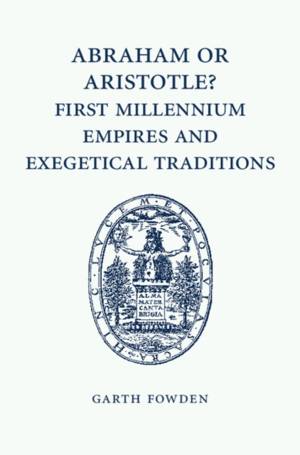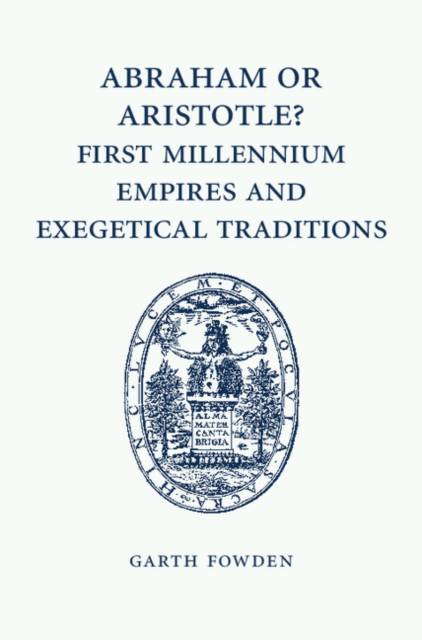
- Afhalen na 1 uur in een winkel met voorraad
- Gratis thuislevering in België vanaf € 30
- Ruim aanbod met 7 miljoen producten
- Afhalen na 1 uur in een winkel met voorraad
- Gratis thuislevering in België vanaf € 30
- Ruim aanbod met 7 miljoen producten
Zoeken
Abraham or Aristotle? First Millennium Empires and Exegetical Traditions
An Inaugural Lecture by the Sultan Qaboos Professor of Abrahamic Faiths Given in the University of Cambridge, 4 December 2013
Garth Fowden
Paperback | Engels
€ 47,95
+ 95 punten
Omschrijving
Judaism, Christianity and Islam - the three scriptural monotheisms, still often studied separately - are here intertwined within a historical frame. The approach outlined in this lecture pivots around the Qur'an as it emerged in seventh-century Arabia on the peripheries of the two world-empires of Iran and Rome, and variously refracts rabbinic Judaism and patristic - especially Syriac - Christianity. The formation and exegesis of scriptural canons helps define the major religious communities and identities both before and after Muhammad. The latter part of the lecture concentrates on the interaction of these communities, and especially their scholars, in the Abbasid Baghdad of the ninth and tenth centuries, and on the theological and philosophical debates that flourished there. The lecture interrogates the newly fashionable concept of 'Abrahamic' religion and proposes a fresh historical periodization inclusive of both late antiquity and Islam, namely the First Millennium.
Specificaties
Betrokkenen
- Auteur(s):
- Uitgeverij:
Inhoud
- Aantal bladzijden:
- 48
- Taal:
- Engels
Eigenschappen
- Productcode (EAN):
- 9781107462410
- Verschijningsdatum:
- 9/04/2015
- Uitvoering:
- Paperback
- Formaat:
- Trade paperback (VS)
- Afmetingen:
- 119 mm x 178 mm
- Gewicht:
- 90 g

Alleen bij Standaard Boekhandel
+ 95 punten op je klantenkaart van Standaard Boekhandel
Beoordelingen
We publiceren alleen reviews die voldoen aan de voorwaarden voor reviews. Bekijk onze voorwaarden voor reviews.







